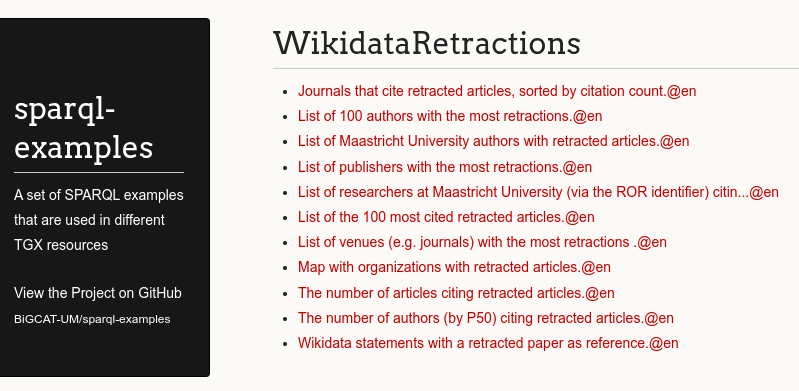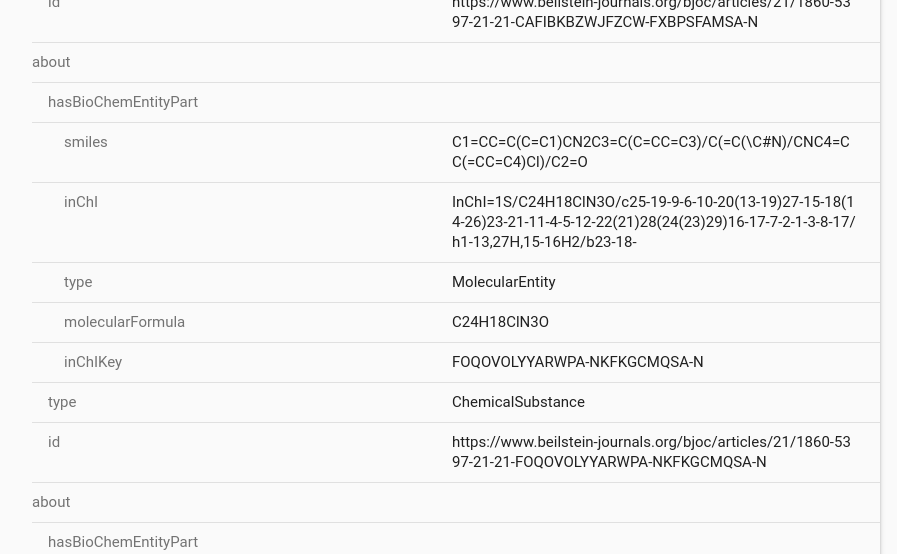-
cdk2024 #4: Chemistry Development Kit User Group Meeting - Day 1
As part of our Dutch Research Council (NWO) Open Science grant, we organized a Chemistry Development Kit User Group Meeting (#CDK25UGM), of which yesterday was the “conference” day, and today a hackathon. -

One Million IUPAC names
Names of chemicals are part of the human user experience when browsing a chemical database. And literature too, of course. Chemical names are also not easy to use, and what a chemical name means is not always clear. This is why the IUPAC started a standardizing nomenclature in chemistry, the IUPAC names. Each IUPAC name uniquely defines the chemical structure it defines. For example, methane is the IUPAC name for the chemical CH4. -

Retracted articles in Wikidata
A good number of years ago, a colleague and I explored if we could get access to the Retraction Watch Database, but we could not afford it. We have been using data on retractions for curate our databases, like WikiPathways. A database should not contain knowledge based on (only) a retracted article. Wikidata, btw, has a small number (499) of statements supported by retracted articles. Similarly, it turns out that I am citing retracted articles in two papers (and a preprint of one of them). -
CiTO for blog citations
This is mostly a test, but if it turns out the way I hope it will, likely after a few iterations, it adds support in my blog for CiTO intent annotations to the DOIs I cite. I pondered about the earlier. In the JSON Feed it should, at least for now, show up like this: -

s/BiGCaT/Translational Genomics/g
With a year of preparation and two years of thinking, on September 1st 2024 the Department of Bioinformatics, aka BiGCaT, merged with two other departments to form the Department of Translational Genomics (see also this LinkedIn announcement). This merger creates many new opportunities while it strenghtens our bioinformatics research. In fact, I will have more room to focus on the chemical roles in our more accurate understanding of biological processes. I am looking forward to the upcoming years! -

Niche papers and citation intentions
I wish I could say I remember the first citation to one of my research articles. I do not. But I do remember the excitement to see why someone was citing my research. What I do remember is that I got a comment around the same time along the lines of this: “why would anyone cite your article if they can download the results for free?” (about open science cheminformatics research). Other times. Indeed, I found out there are many reasons why people are citing and not citing articles. The above is one of them (still happens too often). But that’s also an intrinsic property of the current publishing model: some papers get cited too much, others get cited too little.
